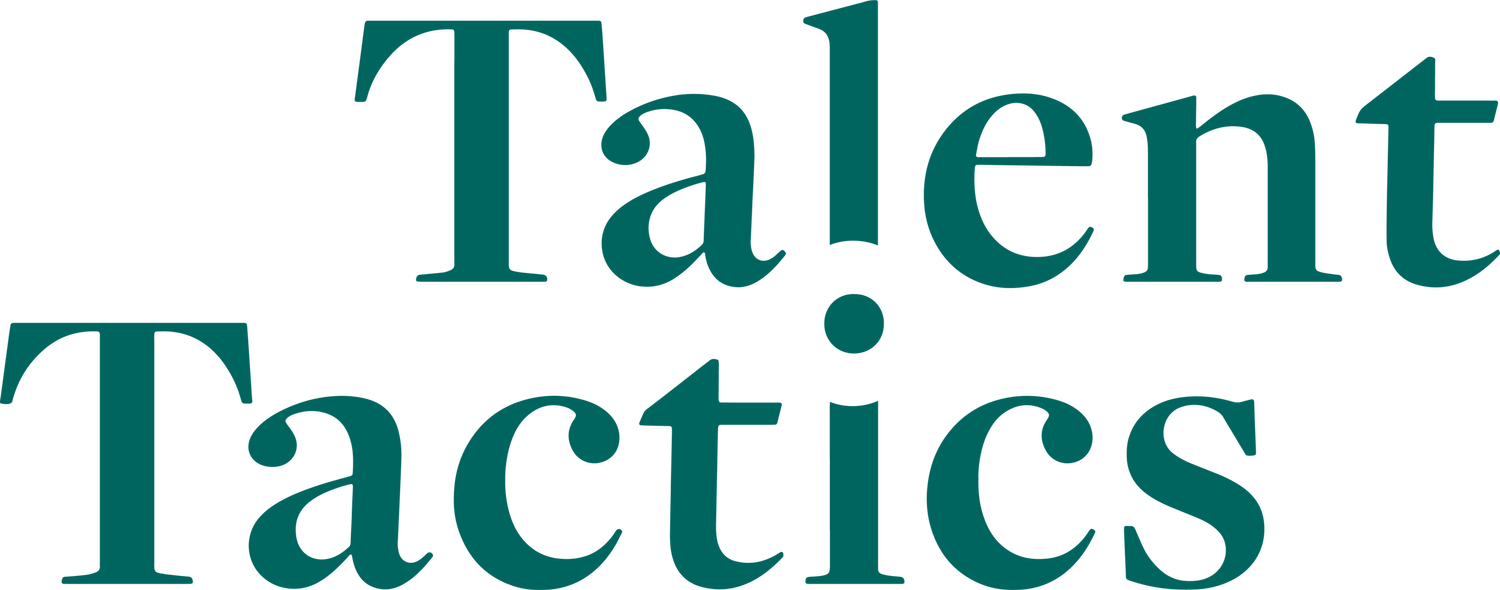Beyond High Performance Why Stable and Reliable Teams Matter Most
Do you ever find yourself avoiding tough conversations about performance? Many leaders do, but avoiding these discussions does more than impact productivity. It can erode morale, frustrate reliable employees, and create uncertainty about what good performance actually looks like.
Not every role requires someone to be a high performer. In reality, most businesses need consistency, reliability, and steady contribution just as much as top-tier performance. Creating a culture of clear expectations ensures that both managers and employees understand what is needed to keep the business moving forward.
It Is Time to Rethink Your Approach to Performance
At Talent Tactics, I help businesses create a performance culture that is fair, practical, and people-focused. Performance management does not need to be a tick-box exercise or a high-pressure system that leaves people burnt out. It should be about ensuring people understand what is expected and giving them the right support to meet those expectations.
If you are unsure where to start, I can help you build a simple, effective approach to performance that works for your business.
Why Leaders Struggle with Performance Conversations
Many managers hesitate to address performance concerns because they worry about being too critical or fear conflict. But avoiding the conversation often leads to more confusion, disengagement, and resentment among those who are consistently showing up and delivering.
Employees want to know where they stand. Clear expectations, regular feedback, and open conversations help people stay engaged and productive. The best teams thrive when accountability is seen as a shared responsibility, not just a top-down directive.
Set the Standard and Lead with Clarity
The way leaders handle feedback sets the tone for the entire team. Do you encourage honest conversations, or do people feel like they need to avoid difficult topics
A strong performance culture does not mean expecting perfection. It means creating a workplace where feedback is part of everyday conversations and employees know what success looks like for them.
Practical Steps to Improve Performance Conversations
Audit Your Management Routines
How often do you check in on your team’s progress
Are expectations clear and measurable
Do employees feel safe giving and receiving feedback
You do not need more meetings, just more intentional conversations. Digital updates, structured 1 to 1s, and clear success measures can help without adding unnecessary admin.
Try the Stop, Start, Continue Framework
One of the most effective ways to support performance improvement is the Stop, Start, Continue feedback model
✔ Stop What is not working What should we eliminate
✔ Start What should we introduce or improve
✔ Continue What is already effective that we should double down on
This method keeps feedback practical and forward-focused, helping teams take ownership of their performance without feeling like they are under constant scrutiny.
A Challenge for You Today
If you could do just one thing today, ask yourself
🛑 When was the last time you invited honest feedback from your manager or peers
🛑 Are you creating a culture where performance conversations are the norm or the exception
Need Help Creating a Fair and Effective Performance Culture Let’s Talk
If you want to build a performance approach that supports both business goals and employee well-being, I can help you put the right systems and conversations in place so that expectations are clear, accountability is fair, and reliable team members feel valued.
📩 Click the Get in Touch button on my website to chat about how I can support you or your team with performance management.
Want to get performance management in shape before it gets messy? A Talent Tactics™ Taster Session helps you assess whether your approach to feedback, accountability, and leadership is working for your business now and for the future.
👉 https://cal.com/lindsay-ferry-xncnv1/discovery-call
#PerformanceManagement #Leadership #Accountability #PeopleStrategy #BusinessSuccess

